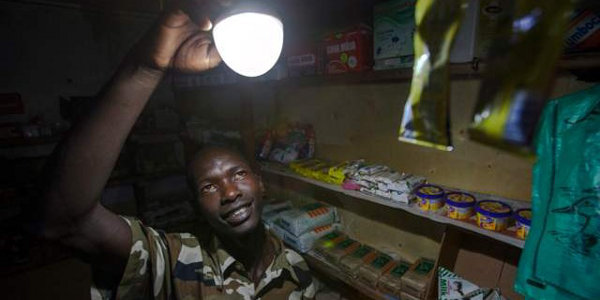How M-KOPA sold solar systems to over 250,000 low-income customers

M-KOPA has sold its solar energy system to over 250,000 low-income households through innovative payment and distribution tactics. Picture: Georgina Goodwin / M-KOPA
In less than three years since its commercial launch in October 2012, Kenya-based consumer finance company M-KOPA has managed to sell its solar energy system to over 250,000 low-income customers in East Africa.
A special How we made it in Africa case study, published today, reveals that M-KOPA’s success so far is due to a combination of innovative technology, an effective rural distribution system, a compelling value proposition, and a strong focus on customer care.
The company sells solar systems predominantly to rural, low-income consumers – a demographic that is traditionally hard to reach. The energy kit includes an 8W solar panel, two LED lights, a USB phone charger, and a portable solar radio.
To buy the system, customers need to make a Ksh.2,999 (US$30) deposit, while the balance is paid off over a 12 month period in daily usage credits of Ksh.40 (about $0.39). Payments are made via mobile money platforms, such as M-Pesa in Kenya.
After one year, customers own the system outright and no longer have to make daily payments. GSM sensors in the equipment allow M-KOPA to regulate usage based on payments received. If a customer stops paying and runs out of credit, the system ceases to function.
M-KOPA currently has over 700 employees, with operations in Kenya, Uganda and Tanzania, as well as in Ghana through a licensing agreement.
[box type=”download”] In this case study, titled ‘Finding success in Africa’s rural, low-income market’ we take a closer look at M-KOPA’s business, with a specific focus on technology, payments, product design, distribution, marketing and customer care. The information is aimed at those interested in serving rural and low-income consumers in Africa. [/box]
In this case study, titled ‘Finding success in Africa’s rural, low-income market’ we take a closer look at M-KOPA’s business, with a specific focus on technology, payments, product design, distribution, marketing and customer care. The information is aimed at those interested in serving rural and low-income consumers in Africa. [/box]

